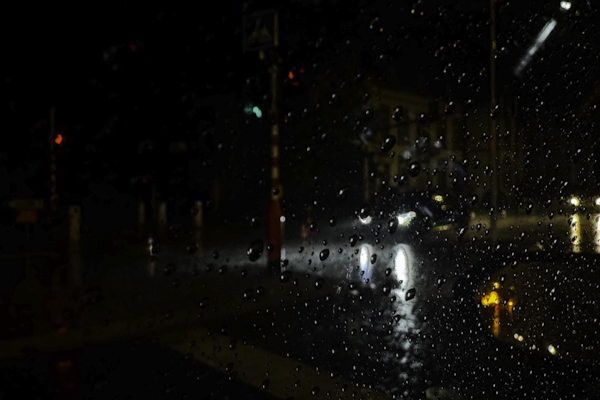 Credit: Ali Sahib, Chronicle.lu
Credit: Ali Sahib, Chronicle.lu
As November arrives, it once again “forces” us to say goodbye to the warmth that lingered unusually long in Luxembourg this year, and to switch our inner rhythm into an autumn-winter, slightly melancholic mode.
The clock change at the end of October was a gentle reminder that soon we will be waking up in darkness and returning home under the glow of street lights and car headlights. Umbrellas will become faithful companions, and children will need waterproof shoes for their joyful puddle-hunting adventures.
In recent weeks, just before the school holidays, my older son kept asking each morning: “Why is it still so dark when we leave the house?” It was a simple question, yet one that captured the reality of this season: the shortening daylight affects not only adults but children too. And still, accepting that by 16:00 it will already be dark outside feels almost impossible.
But perhaps this familiar heaviness is not just “autumn melancholy”; it is a natural reaction of our body and mind to the changing rhythm of light and time.
As days grow shorter and the light fades earlier each evening, many people in Luxembourg begin to feel this subtle heaviness, the so-called winter blues.
As the seasons shift and daylight recedes, what many of us dismiss as a bout of winter fatigue or “the blues” may in fact reflect a well-documented condition: Seasonal Affective Disorder (SAD). First described by psychiatrist Norman E. Rosenthal in 1984, SAD is a subtype of major depressive disorder marked by recurring episodes in autumn and winter, when natural light is reduced. Epidemiological reviews, such as the one by Anna Wirz-Justice and colleagues (2018) in the European Journal of Psychiatry Clinical Neuroscience, suggest that in temperate European regions up to 7-10% of the population may experience significant seasonal mood shifts, with full-blown SAD comprising about 2-5% and sub-syndromal forms even more common.
In Luxembourg, where daylight hours shrink rapidly and the skies often turn grey and wet without warning, the impact can be particularly acute. The combination of early darkness, overcast weather and limited sunshine becomes more than just an annoyance, it becomes a potential trigger for mood and energy dips. Agencies such as PSSM Luxembourg (Premiers Secours en Santé Mentale) and the World Health Organization (WHO) recommend paying attention to early warning signs: persistent tiredness despite a full night’s sleep, difficulty waking up, social withdrawal and a gradual drop in motivation.They emphasise that the sooner one recognises these changes, the more effective the coping can be.
But awareness alone is not enough; what truly matters is access to help, and the authorities in Luxembourg have been taking meaningful steps in that direction.
Initiatives and support in Luxembourg
While the darker months can weigh heavily, Luxembourg offers a growing network of initiatives and organisations dedicated to mental well-being. The non-profit SOS Détresse - Hëllef iwwer Telefon has long been a cornerstone of emotional support in the country, providing 24/7 confidential helplines in several languages for those experiencing loneliness, anxiety or crisis. According to the organisation’s 2024 annual report, the number of calls related to isolation and depressive symptoms increased by nearly 15% compared to the previous year, a trend that reflects both the psychological strain of recent times and a healthier openness to seeking help.
The Ligue Luxembourgeoise d’Hygiène Mentale (D’Ligue) provides psychological counselling and therapy options at low or no cost, working closely with general practitioners and hospitals to ensure accessibility.
In the community space, ASTF.lu’s social well-being workshops encourage people to reconnect with themselves and their surroundings, offering practical ways to restore focus, reduce stress and improve emotional balance. Many of these sessions are bilingual, fostering inclusion and cross-cultural dialogue.
Together, these services form a strong support ecosystem that encourages people to reach out, talk, and take preventive steps before seasonal stress turns into deeper depression.
Community and Light: Finding Joy in the Season
Even as the nights grow longer, Luxembourg finds ways to bring warmth and brightness back into daily life. The winter calendar fills with opportunities to reconnect both with others and with the season itself. With the increasingly-popular Halowe'en celebrations now behind us, at least for another year, the Winterlights Festival is scheduled to open on Friday 21 November 2025 and transform the capital into a sparkling winter wonderland of markets, music and glowing lanterns (vdl.lu). A stroll through the city's illuminated squares, from Place d'Armes to the Knuedler, offers not just festive charm but a reminder that light is still all around us. Beyond the capital city, the Christmas markets in Esch-sur-Alzette, Differdange and Vianden (amongst others) provide inviting pockets of joy. At Esch's main square, Place de l'Hôtel de Ville, the market officially opens on Friday 14 November 2025 at 19:00. Meanwhile, the Philharmonie Luxembourg hosts the family festival "Chrëschtdag" from Tuesday 18 to Friday 21 November 2025, offering musical and cultural experiences for all ages (philharmonie.lu).
For those seeking a slower rhythm, the municipality and community networks such as VDL Activities for Well-being offer well-being walks, yoga groups and cultural workshops during the darker months. Even simple rituals can make a difference: a misty afternoon walk through the Grund, or sharing a warm drink (even if not coffee) with a friend in a cosy café. Light therapy, outdoor time and shared activities have been shown to support mood and energy. But beyond medical advice, there is a deeper message: belonging, conversation and presence are often the brightest sources of light.
Staying Well During the Dark Season
Mental health organisations such as the World Health Organization (WHO) and PSSM Luxembourg (Premiers Secours en Santé Mentale) recommend a few simple, evidence-based steps to maintain emotional balance during the darker months:
- Seek daylight whenever possible. Even short walks in natural light can help regulate sleep patterns and boost energy levels.
- Keep a routine. Maintaining consistent wake and sleep times supports mental stability and reduces fatigue.
- Stay connected. Regular contact with friends, family or colleagues can significantly reduce feelings of isolation.
- Stay active indoors. Light exercise, stretching or dancing at home can stimulate serotonin and improve mood.
On a personal note, my family and I try to make the most of outdoor activities whenever the weather allows. When we prefer to stay indoors, we turn to board games, simple but joyful moments that keep us connected. Small weekend bike or scooter rides also help us break the monotony and bring lightness to this challenging time of year. Getting out in the fresh air for a short nature walk can also make a real difference - whether it is around the lakes at Remerschen or Kockelscheuer, or along one of Luxembourg’s many forest trails and riverside paths.
As Luxembourg embraces its long winter nights, finding light - in nature, in others, and within - may be the simplest yet most powerful form of resilience.









